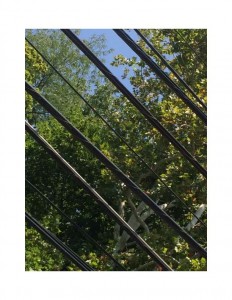Assignment: Write a 2-3 page response paper in which you define Nature (according to you). Personal and/or analytical writing is acceptable, but please be sure to engage 2 or 3 texts as part of your discussion. Papers are due electronically to both instructors by classtime on Wednesday, 9/9.
Discussion: Response Paper #1 asks you to embrace the chance to articulate a definition of what you consider to be “Nature.” Your sense of Nature, the Natural World, or the Environment may be a deep, confident belief you have known for all your life, or, it may be something you have only recently begun to define–or refine–in response to an observation, an experience, or a reading. Your task here is to put yourself on the map, or on record, in relation to other voices and/or experiences.
Relevant ways into this assignment include analyzing textual passages, interpreting encounters your have had, responding to images. Asking questions is good. Putting different writers’ assertions in conversation with each other is good. Drawing boundaries around what is and what is not Nature (according to you) is helpful. Asserting an idea that needs evidence and discussion to defend is good.
Here is a rough beginning example (you can do much better):
The above image was made during our ramble this afternoon along the Bushkill Creek heading toward North Third Street. I was struck by how at one point my view of the trees on the hill was hemmed in by telephone cables and power lines. At several points, what we might readily term “Nature” was crowded out or even caged by human made things–by details of the built environment. Did this compromise the experience or make it an encounter with something other than–or less than–Nature? In order to know Nature, must we look past or around or through obstructions that are not Nature? That is, is the human interface with Nature dependent upon not just our ability to sense (in this case to see), but also upon our willful “not seeing.” If so, does our encounter with the natural world often (or always) contain a dimension that is fictional or fabricated? Or, is what we term nature all the more impressive, beautiful, hopeful, other, when seen in juxtaposition with the human-made?
Thoreau wonders about our capacities of vision. He seems worried about our typically-limited vision, when he writes: “I perceive that we inhabitants of New England live this mean life that we do because our vision does not penetrate the surface of things” (103). He wants to assert that the divine exists everywhere in the world, but we fail to see beyond the least important. There is an urgency below the easy, the kind of insistence Dillard seems to stumble upon in the eyes of the weasel. I wonder how often I look beneath the surface of things. We often most easily think of Nature as a beautiful vision, as a postcard panorama, but that is when we are farthest from the object and we give the least effort. Is anything required of us by Nature in order for us to penetrate below the surface? If we don’t get below the superficial, Thoreau and Dillard seem to imply there is a cost…
You get the idea. The above is only a beginning and a suggestion. More engagement with the texts is going to lead you farther. Do your best to find engaging territory and, like Thoreau, dig.

